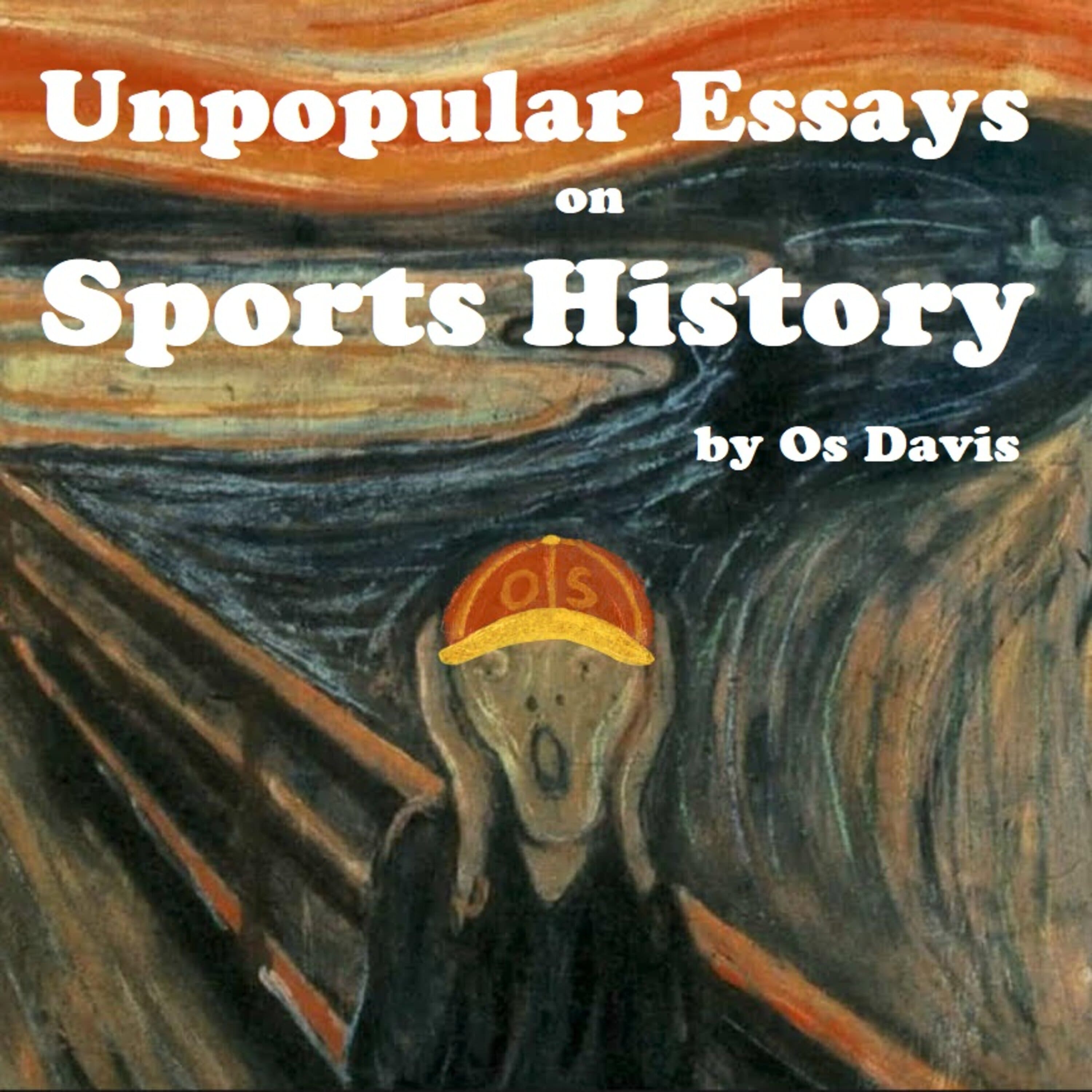
Supposition. We live in a golden age of sports.
I mean this not in the sense of athletes becoming stronger, speedier, savvier and smarter than ever before, nor in terms of the amazing access to live streams and stat feeds, the instant insights and opinionating, the quirks and personalities of celebrity heroes.
This, rather, is a golden age of sports in humanistic, historical terms. The truth is that the great majority of people today, willingly or not, have a direct and regular connection to organized and/or participatory sports in their everyday lives than anyone born before the 20th century.
In the United States, not a person alive can recall a time when sports was not a staple of the daily newspaper. For four generations, the notion that nightly news programs should devote up to one-quarter of their airtime to sports is taken for granted. Why do we take this for granted?
At Unpopular Essays on Sports History, everything is questionable.
Unpopular Essays on Sports History
A huge thank you to our supporters, it means a lot that you support our podcast.
Support Podcast
Supposition. We live in a golden age of sports.
I mean this not in the sense of athletes becoming stronger, speedier, savvier and smarter than ever before, nor in terms of the amazing access to live streams and stat feeds, the instant insights and opinionating, the quirks and personalities of celebrity heroes.
This, rather, is a golden age of sports in humanistic, historical terms. The truth is that the great majority of people today, willingly or not, have a direct and regular connection to organized and/or participatory sports in their everyday lives than anyone born before the 20th century.
In the United States, not a person alive can recall a time when sports was not a staple of the daily newspaper. For four generations, the notion that nightly news programs should devote up to one-quarter of their airtime to sports is taken for granted. Why do we take this for granted?
At Unpopular Essays on Sports History, everything is questionable.


